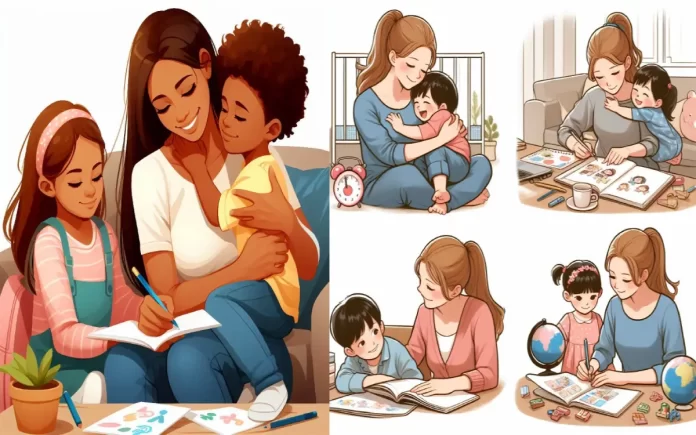Motherhood is perhaps the most precious gift bestowed upon us, whether by nature or a higher power, depending on one’s beliefs. A child, regardless of gender, represents the future. As a mother to a daughter, still in infancy, I find that nurturing her is not merely a duty but a blend of responsibility and love transcending mere obligation.
Gone are the days of joint families, with urbanization and economic pressures pushing many of us into nuclear family setups, sometimes even far from our hometowns. This shift isn’t always a matter of choice but a necessity driven by the desire to provide a better life for our children, offering them opportunities we may not have had ourselves. Thus, we evolve and pass on our values to the next generation.
Like many of my generation, I was raised in a joint family, and similarly, my husband hails from such a background. However, the changing times and modern society have urged us to adapt. Nowadays, returning to one’s hometown or spending extended time with parents and in-laws is often a luxury.
Read More: Nurturing Tomorrow’s Innovators: The Pivotal Role of Education in Fostering Children’s Creativity
There’s a common saying that when a woman marries, she must leave her parental home and adjust to living in her husband’s household. But consider those who leave not just their parental home but their entire hometowns, stepping out of their comfort zones to support their families. Are they really any different from the rest of us?
My husband has been away from his hometown for nearly eight years, and we’ve been married for almost seven. For the past five years, we’ve been living in New Delhi, the nation’s capital. During this time, we’ve experienced many challenges and emotional moments, including brief visits to our hometown together. Recently, when we visited Kolkata, my husband had to return to Delhi early due to work commitments, leaving me to travel back alone with our daughter, who was unwell with a fever. Despite my initial worries, we managed the journey safely, and my daughter is now recovering.
Read More: We Are Human Beings; AI or Anything Else, We Evolve to Thrive
This trip marked my first solo journey with my daughter from Kolkata to Delhi. Previously, my husband had accompanied us. Now, back home, I continue with the daily responsibilities of raising my daughter while my husband commutes long hours to and from his office. I once heard a saying that it’s not the office hours that tire us but the daily commute. However, this experience taught me that, as men or women, we can overcome challenges once we accept reality.
It may appear that I’m solely sacrificing my career to raise my daughter, but when I see her peacefully asleep during the day, I’m reminded of how fortunate I am. The internet has spared me from the exhausting daily commute, and it’s my husband who works tirelessly to provide for our family, ensuring there’s food on our table and striving to give our daughter a better life. Moreover, I take pride in the fact that I am nurturing our daughter, a gift bestowed upon us by nature. After all, isn’t it often said that a mother is a child’s first teacher?
As women, we play many roles – daughters, sisters, wives, mothers, apprentices, mentors. Motherhood, in particular, has taught me to empathize with others, mirroring the understanding we have for our children’s needs. We are bestowed with the incredible power to bring life into this world and possess the resilience and adaptability to navigate its challenges, passing on these lessons to our children.
As we commemorate this International Women’s Day, let’s make a collective pledge: We are women, embodying nature’s finest example of adaptability. Let us commit to passing on this invaluable lesson to our children, shaping a future generation equipped with resilience and strength. Because we are mothers, and whether in the present, past, or future, mothers never view their children as solely male or female—they are simply our children, deserving of equality in all aspects, regardless of gender.



